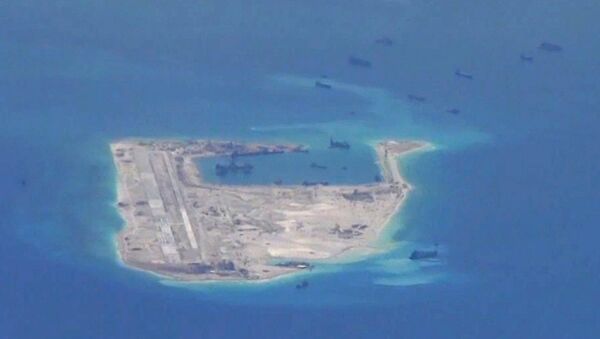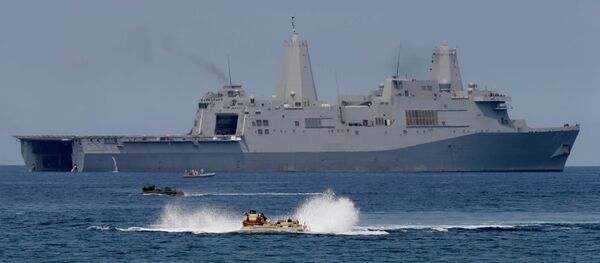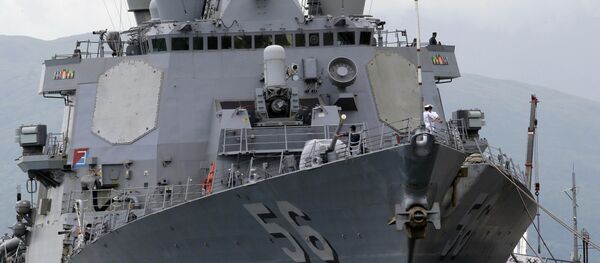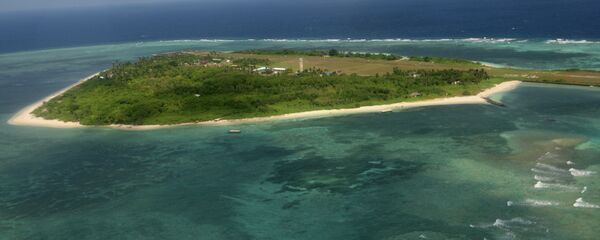Last week, reports surfaced that the US planned to send warships within the 12-mile zone of China’s artificial islands in the Spratly archipelago. Naturally, the news received condemnation from Beijing.
"We urge the related parties not to take any provocative actions, and genuinely take a responsible stance on regional peace and stability," Chinese Foreign Ministry spokeswoman Hua Chunying said during a news briefing.
But despite that condemnation, the US appears to have taken further steps. On Tuesday, US Secretary of State John Kerry and Defense Secretary Ash Carter met with Australian Foreign Minister Julie Bishop and Defense Minister Marise Payne in Boston.
On the agenda: South China Sea cooperation.
"We do operate with the Australians in certain areas of the South China Sea," a senior US official told Reuters. "And we’re looking for ways of expanding the opportunities for us to operate together."
According to that official, an official decision to follow-through with the patrols has not yet been made.
"You know, doing the 12 nautical miles challenge is one among a variety of options that we’re considering, but I can’t get into current or future operations," he said.
"We’re waiting for an interagency decision that includes the White House."
Still, comments made by Carter on Tuesday indicate that the US is firmly intent on asserting dominance in the region.
"Make no mistake, the United States will fly, sail and operate wherever international law allows, as we do around the world, and the South China Sea will not be an exception," he said during a news conference.
When asked specifically about the Spratly island patrols, Carter said "We will do that in the time and places of our choosing."
Some Washington analysts believe that a decision has, in fact, been made, and that patrols could begin as soon as this week.
With nearly $5 trillion in trade passing through the waterway every year, the South China Sea is a highly-contested region. While China claims most of the sea, there are overlapping claims by Vietnam, Brunei, Malaysia, and the Philippines.
Neither the United States nor Australia holds any claim in the region.
While Washington has accused Beijing of violating international law with its land reclamation efforts, China has repeatedly asserted its right to build within its own territory. Chinese officials have also denied US claims that the islands will be used to establish a defense zone, insisting that the installations will be used largely for humanitarian purposes.





